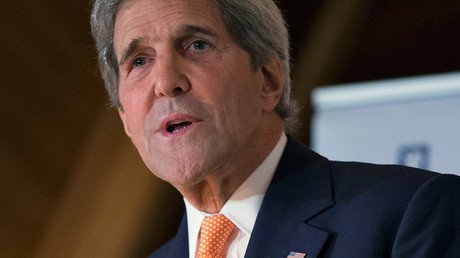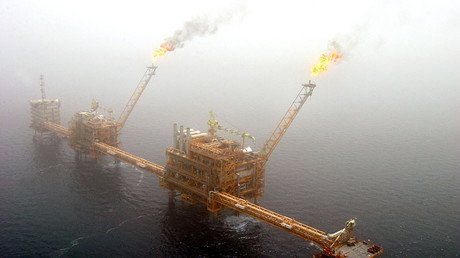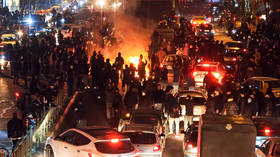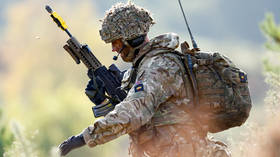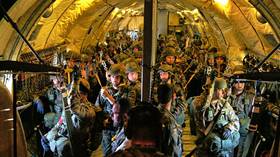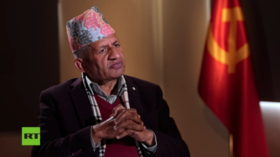UNity: Tehran, Moscow & Washington show rare solidarity in bashing UN report on Iran nuke deal
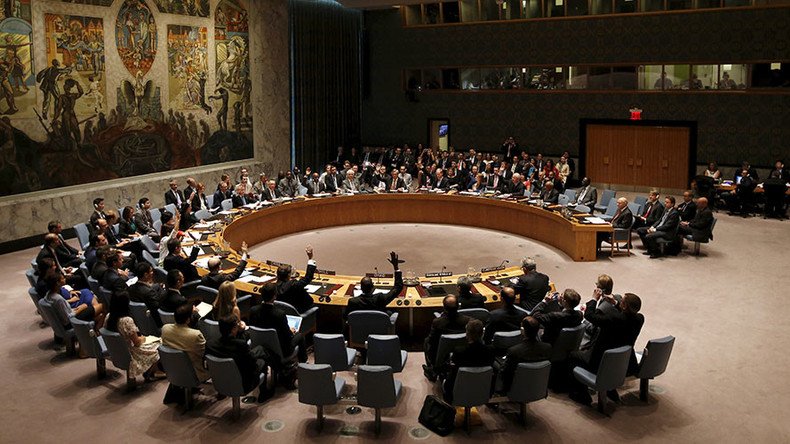
The latest report by the UN chief regarding the Iran nuclear deal has come under fire from Russia, Iran and the US at the same time. They disagree with it, saying it contains “gross factual mistakes” and labeling it “unbalanced and biased.”
“Let us be straight: the United Nations secretary-general’s report to the Security Council does not fit the necessary business rhythm,” Russian Ambassador to the UNSC Vitaly Churkin told his colleagues on Monday.
“The document is politically-motivated and goes far beyond the frames of factual summary of the course of the implementation of Security Council Resolution 2231," Churkin added, according to TASS. "Moreover, it contains a lot of irrelevant information [and] gross factual mistakes."
He also accused the UN chief of “unacceptable” use of “unverified data taken from the mass media or obtained from certain countries.”
The US appeared to be equally unhappy with the report, with Ambassador to the UNSC Samantha Power voicing the American stance.
"The United States disagrees strongly with elements of this report, including that its content goes beyond the appropriate scope. We understand that Iran also disagrees strongly with parts of the report," Power told the council.
Iran does disagree with the report, with Iranian Foreign Ministry Spokesman Bahram Qassemi having described it as “unbalanced and biased” just prior to the UNSC meeting.
He also lashed out at Washington, saying the report was “prepared under open pressure by the United States.”
Qassemi called the allegations in the report “unfounded,” emphasizing that "Iran’s ballistic missiles by no means fall within the jurisdiction of Resolution 2231, because they have not been designed to carry nuclear warheads and the Islamic Republic of Iran will, therefore, not allow anyone to even opine about its defense system.”
Ban Ki-moon’s report said that the ballistic missile launches by Iran in March were at odds with the deal, and "not consistent with the constructive spirit" of the agreement.
"I call upon Iran to refrain from conducting such ballistic missile launches since they have the potential to increase tensions in the region," the UN chief wrote in his first biannual report to the 15-member Security Council.
Last year, Iran and the 5+1 group (the five permanent members of the UN Security Council, plus Germany) made a deal with Iran to make sure that its nuclear program is peaceful.
The agreement said that Iran should eliminate its stockpile of medium-enriched uranium, cut its stockpile of low-enriched uranium, and reduce by about two-thirds the number of its gas centrifuges.
Iran also agreed to let the International Atomic Energy Agency (IAEA) to monitor the status of the deal, and to check if Tehran complies with the conditions.
In return, the US, the EU, and the UN Security Council pledged to lift the sanctions linked with the nuclear sector.
Last week, Iran attempted to launch a new type of ballistic missile, the fourth in a series of launches that have been ongoing this year. Iran's development of the technology has raised concerns that it could equip the missiles with nuclear warheads, which Tehran insists it does not possess.
Tehran is "called upon" to refrain from work on ballistic missiles for up to eight years under Security Council resolution. While the resolution is not regarded by key powers as legally-binding. Still, Ban’s report urged UNSC to decide if Iran had violated the resolution.
